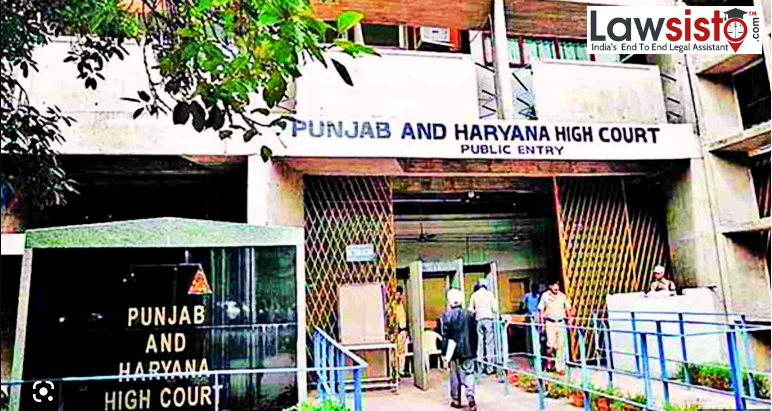Latest News
P&H HC SAYS, CHEQUE BOUNCE COMPLAINT FILED ON THE 14TH DAY OF SENDING LEGAL NOTICE IS UNMAINTAINABLE

In a recent judgment delivered by the Punjab and Haryana High Court, no court can take cognizance of an offence under Section 138 of the Negotiable Instruments Act, 1881, unless a valid written complaint, fulfilling all the requirements, is filed by the complainant according to Section 142 of the aforementioned act. The single-judge bench of Justice Aman Chaudhary heard the appeal challenging the judgment passed by the Judicial Magistrate 1st Class at Yamuna Nagar, vide which the complaint was dismissed.
The facts of the case at hand were that an agreement was entered into between the parties, i.e., The Haryana State Cooperative Supply and Marketing Federation Ltd. (appellant) and M/s Hanuman Rice Mill and another (respondents). Accordingly, 47,322 quintals and 80 kgs of paddy were supplied for custom milling to the respondents. However, the consignment was found to be short of 6738 quintals and 2 kgs of paddy when it was lifted from the sheller, which cost the plaintiff/appellant a total loss of Rs.78,00,800/-. Subsequently, in the discharge of the existing part liability, the respondent issued a cheque for a sum of Rs.50 lakhs, drawn on the State Bank of India (Jagadhari branch). However, the same was dishonoured vide memo with the remarks “funds insufficient”. This was repeated, after which 15 days were given to the respondents via a postal legal notice to make the requisite payment. However, due to non-payment of the amount, the complaint was filed by the appellant wherein the respondents were summoned by the trial Court to face the trial. Lastly, even the High Court stated that the trial Court had rightly held the complaint to be unmaintainable, and premature, having been filed on 3.11.2010 i.e., the 14th day.
Mr Pawan Girdhar and Mr Manav Bajaj counsel for the appellant contended before the court that the view taken by the trial court of “premature filing of the complaint on the 14th day” was incorrect. They submitted that since the cognizance of the complaint had been taken on the same day itself, so it cannot be regarded as a premature complaint. Moreover, this approach adopted by the learned trial court while dismissing the complaint was a hyper-technical one. Contrarily, Mr Parminder Singh, the counsel for the respondent submitted that the factum of taking the cognizance on the same very day would not, ipso facto, make the complaint maintainable. Moreover, waiting for the 15 days to expire is an important condition mentioned under the provision of Section 138 of the Act.
Since the complainant was under a legal obligation to have waited for 15 days after sending a legal notice, the single-judge bench of the Punjab and Haryana High Court ruled that the order passed by the Judicial Magistrate 1st Class needed no interference. Furthermore, the complainant failed to prove the ingredients of Section 138 of the NI Act. The court placed reliance on the judgment of Sarav Investment & Financial Consultancy Private Limited and another vs. Llyods, Register of Shipping, India Officer, Staff Provident Fund and another, (2007) 13 SCC 753, which held that nothing contained in the main provision of Section 138 shall apply unless the requirements prescribed therein are complied with.
Hence, the premature filing of the complaint was the only ground for dismissing the appeal. In the view of the court, since an important and major ingredient of the offence in question is not being fulfilled the complaint in hand deserves to be dismissed.
Refer to the following case for more details - The Haryana State Cooperative Supply and Marketing Federation Ltd. v. M/s Hanuman Rice Mill and another (Case No.- CRA-AS-338-2022)
Document:



































































































